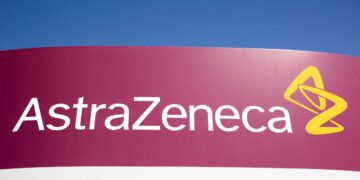ROME (Reuters) -Europe’s largest film studio Cinecitta is aiming to re-launch Italy as a movie powerhouse, even as U.S. President Donald Trump’s proposed tariffs on foreign productions cast a shadow over the film industry globally.
Cinecitta, the homonymous company that manages Rome’s historic film studio, approved a five-year plan this week backed by the EU’s post-COVID Recovery Fund, which includes building new high-tech sound stages and boosting production capacity by 60% by 2026.
“We want to lead the game,” said CEO Manuela Cacciamani. “Cinecitta must be a factory that works at full capacity… with excellence as a minimum standard.”
Founded in 1937 under Benito Mussolini’s fascist rule, Cinecitta became known as the “Hollywood on the Tiber”. It has hosted over 3,000 films, attracting world-renowned directors such as Martin Scorsese, Federico Fellini and Francis Ford Coppola.
The company is targeting revenue of 51.9 million euros ($58.8 million) in 2029, almost double the 2024 figure, and aims to turn a 4.3-million-euro net profit after a loss of 11.6 million euros last year.
Trump has said he will impose a 100% tariff on movies produced outside the United States to save Hollywood from “a very fast death”, but has issued few details on how the levy would work.
The tariff plan threatens to disrupt the current industry set-up, in which big U.S. productions rely on the services of studios around the world that can provide expertise, cheaper costs and striking location scenery.
Trump’s sweeping tariffs were temporarily reinstated by a federal appeals court on Thursday, a day after a U.S. trade court blocked them, ruling Trump had exceeded his authority.
Cacciamani told Reuters Cinecitta was monitoring “with the utmost care” developments regarding the tariff threat.
“The hope is that two historic powers of cinema worldwide, (Italy and the U.S.) which owe so much to each other, will continue to cooperate,” she said.
Italy’s tax credit of up to 40% for film production is “among the most competitive worldwide”, Cinecitta said, helping attract some of last year’s international successes such as “Emilia Perez” and the papal thriller “Conclave”.
Among projects slotted for filming in Cinecitta this year is Mel Gibson’s “The Resurrection of The Christ”, a sequel to his 2004 “The Passion of The Christ”.
Gibson is one of Trump’s “Special Ambassadors” in Hollywood, tasked with rescuing the U.S. film industry alongside actors Jon Voight and Sylvester Stallone. His next film, being shot in Italy, would be exposed to the tariff.
($1 = 0.8828 euros)
(Editing by Gavin Jones and Emelia Sithole-Matarise)
By Enrico Sciacovelli















